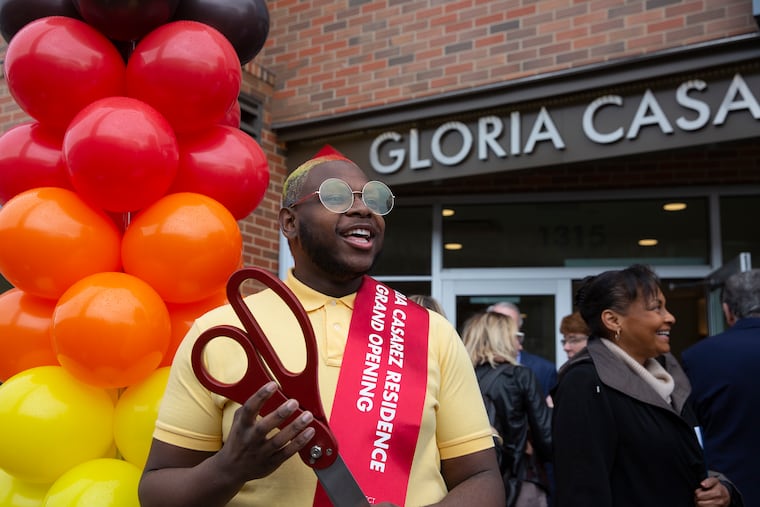Pa.’s first LGBTQ-friendly homeless residence for young adults opens in Philly
The building was called "a beautiful and desperately needed space."

James Allen came out as bisexual at 13, only to absorb so much abuse that he considered taking his own life.
Through the years, he vowed to himself, “One day, I’m going to have my own place, where I feel safe and loved.”
On Tuesday, Allen, now 20, declared that he had finally found that place.
“This is my domain,” he told about 125 people gathered for the grand opening of the Gloria Casarez Residence in North Philadelphia, the first LGBTQ-friendly permanent housing for young adults in Pennsylvania.
“I welcome you to my home.”
The event was hosted by Project HOME, the nonprofit that combats homelessness in the city. Sister Mary Scullion, its president and executive director, was the force behind the construction, gathering $13 million in public and private funding to create the four-story brick residence at Eighth and Thompson Streets that bears the Project HOME motto, “None of us are home until all of us are home.”
The residence, which includes 30 one-bedroom apartments for those 18 to 23 who have aged out of the foster care system and/or are homeless, is named after Gloria Casarez, Philadelphia’s first director of the Mayor’s Office of Lesbian, Gay, Bisexual and Transgender Affairs, appointed in 2008. She died of cancer in 2014.
“Philadelphia is the place [where] Gloria fought for all of us,” Amber Hikes, current executive director of the office, said at the grand opening. “This building is a beautiful and desperately needed space.”
It’s estimated that people who identify as LGBTQ make up about 40 percent of all people experiencing homelessness in the nation, according to Project HOME figures.
Nearly 1,000 people live homeless on Philadelphia’s streets, with an estimated 5,000 living in shelters or using homeless services through the year, city figures show.
Scullion said that Project HOME is working to build “real and lasting solutions to homelessness."
Mindful of inclusiveness of LGBTQ people experiencing homelessness, Scullion said the opening of the residence represents a “magnificent celebration of the power of we.”
She added that LGBTQ people who experience homelessness have “borne the brunt of vicious social stigma.” Give people a place to call home, Scullion added, “and it will be a base for them to develop their gifts.”
The building received funding from the city as well as the Philadelphia Housing Authority, U.S. Department of Housing and Urban Development, William Penn Foundation, and Philadelphia Foundation, and from private donors.
Along with a home, residents are provided with a combination of employment, education, and health-care services, as well as life-skills education.
Residents are asked to pay 30 percent of whatever income they have for rent.